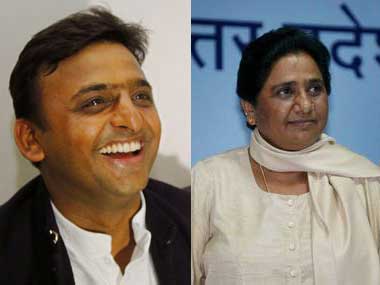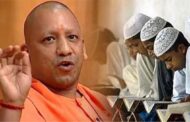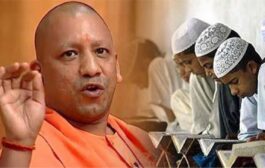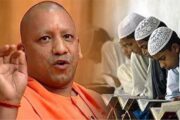The committee was formed to offset widespread opposition to the Citizenship Bill in Assam.

The high-powered committee announced by Union home minister Rajnath Singh in New Delhi on January 4 to suggest ways to implement Clause 5 of the Assam Accord has hit troubled waters right from the start. As many as five of the nine members have refused to be a part of the committee.
The committee was formed as per a Union Cabinet decision to offset widespread opposition among the majority population of the northeastern state to the Centre’s decision to pass the controversial Citizenship (Amendment) Bill 2016.
Clause 6 of the Accord entails constitutional, legislative and administrative safeguards to “Assamese people” to protect their culture heritage and social and linguistic identity. The panel was given a mandate of six months to submit its report to the Ministry of Home Affairs.
The Citizenship Bill, pushed by the ruling BJP in the recent session of parliament keeping in mind its prospects in the Hindi heartland and West Bengal during the 2019 general elections, is contradictory to the exclusive citizenship cut-off date of March 24, 1971 meant for Assam as per the Assam Accord.
The cut-off date was inserted into the Citizenship Act, 1955 under Clause 6A only for Assam. However, according to the proposed amendment to the Act, Hindu Bangladeshis, among others, would be granted Indian citizenship on the basis of a new cut-off date – December 31, 2014. As per BJP state leaders like Himanta Biswa Sarma, the amendment would benefit about eight lakh residents of the state.
However, since Prime Minister Narendra Modi announced on January 3 at a poll rally in Bengali Hindu-dominated Silchar town of Assam that his government would do “penance” by passing the Bill to grant Indian citizenship to six communities on religious lines from Bangladesh, Pakistan and Afghanistan, there have been massive protests in the rest of Assam. The majority population is opposed to the Centre’s decision to provide preference to unauthorised immigrants from Bangladesh based on religion.
The high-powered committee, notified on January 7, was to be headed by retired Central government bureaucrat M.P. Bezbaruah, with noted Guwahati-based journalist Dhiren Bezbaruah, writers Nagen Sarma and Rongbong Terang, educationist Mukunda Rajbongshi, retired bureaucrat Subash Das, advocate general of Assam Ramesh Borpatra Gohain and a representative of the All Assam Students Union (AASU) as members. Satyendra Garg, the joint secretary (North East) at the MHA, will represent the Central government.
This became the second Bezbaruah-led Committee to be formed by the Centre to deal with an issue related to northeastern matters. Following massive public outcry against the alleged murder of an Arunachali youth in Delhi after he was physically assaulted and abused on allegedly racial grounds, the Manmohan Singh government formed the Bezbaruah Committee in February 2014 to suggest measures which could be implemented by the Centre to create a better ecosystem for people from the northeast residing outside the region. Though in July 2014, the committee submitted its report to the Modi government, nothing much has been done to implement the key recommendations.
On January 10, stating his reasons for recusing himself from the new committee, Nagen Saikia, former president of the Asom Sahitya Sabha, a prestigious body of Assamese writer-intellectuals, told the local media, “I initially accepted to be its member but have decided to come out of it as I realised it is only a committee and not a Bill. The next government at the Centre is not bound to implement the recommendations of the committee.”
Along with Saikia, Rongbong Terang, also a former president of the Sahitya Sabha, walked out of the committee. They were followed by educationist Mukunda Rajbongshi.
Soon after the names were announced, Dhiren Bezbaruah refused to be a part of the committee, citing his advanced age.
The AASU too had opted out of it then, demanding that the Modi government first scrap the Bill.
source: TheWire







































